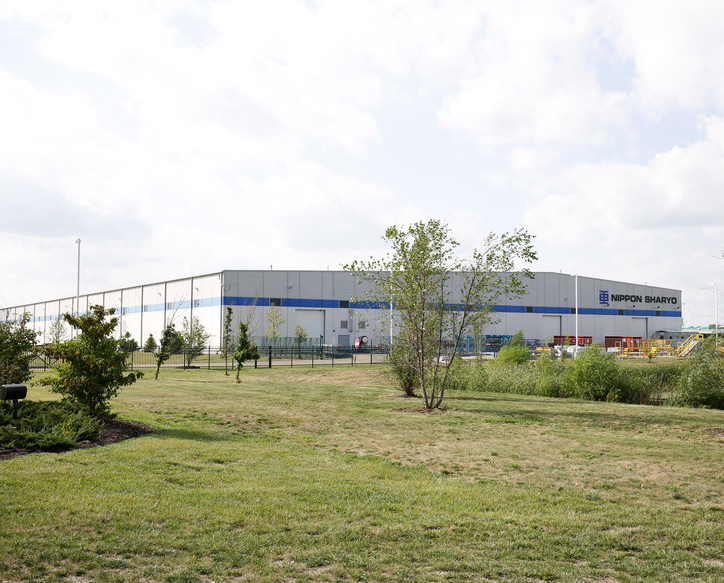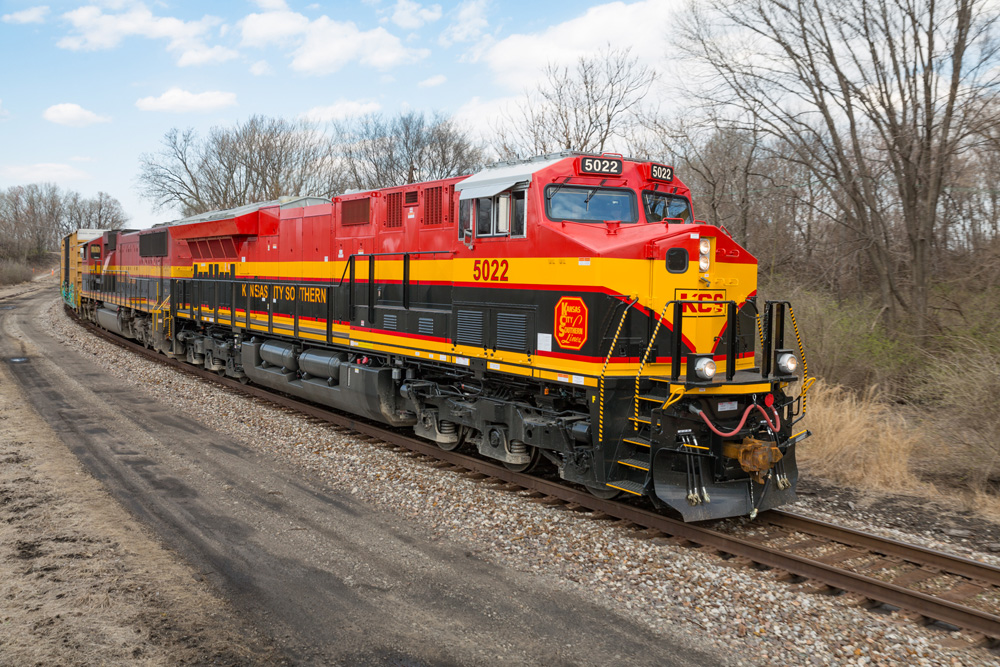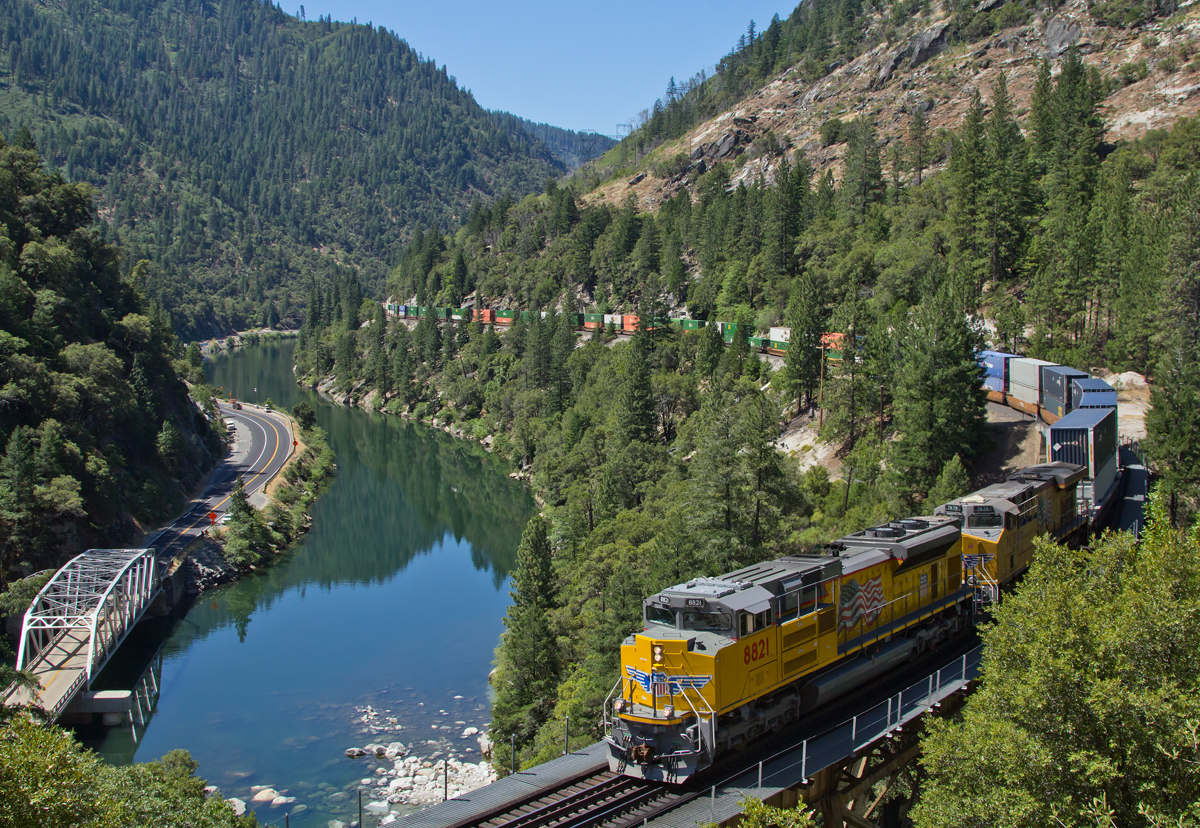The company blamed the closing on its failure to complete a contract to deliver 130 bilevel Amtrak passenger cars for Illinois and California. The company was replaced by Siemens in 2017.
“Ultimately, the complexity of the project prevented Nippon Sharyo from successful completion of this project,” according to a statement to Trains News Wire. “This result brought significant losses, which severely impaired our financial conditions to the extent that we can no longer build rail cars at the Rochelle factory.”
The company said it had performed “years of dedicated work by company leaders and employees” to deliver the bilevel cars.
The plant had built 160 Highliner passenger cars for Chicago’s Metra commuter rail agency, and delivered the last of them in 2016.
Nippon Sharyo said it has been reducing its workforce at the plant for more than a year to meet the decreased workload in its North American operations, and the closure of this plant is the final step in that process.
A specific closure date was not given, but production activities at the plant have already shut down. There is currently a small staff handling administrative duties, field service, and maintenance services for existing customers, company officials say.
“While this is not the outcome we would have wanted, and are disappointed for our staff and the community, we are heartened that most of our former employees have been able to find employment elsewhere,” the statement says.
Nippon Sharyo officials say they will be preparing a sale of the factory and its assets. In fact, Trains News Wire has already spotted a listing for sale of the 800,000-square-foot building with the international commercial real estate firm Avison Young. No price was listed.
Nippon Sharyo officials say they will work for a “smooth process” that “will ultimately benefit the community.” It also thanked the city of Rochelle for its “exemplary partnership over the past several years.”
Jason Anderson, Rochelle’s economic development director, tells News Wire that the plant’s closing will not have a significant detrimental impact on the community.
The plant employed as many as 800 workers but most came from a wide area of north-central Illinois and even Iowa, have been able to locate other jobs, Anderson says. He praised Nippon Sharyo for sending many employees to Japan for intensive training.
“It was a slow and gradual reduction over time” Anderson says. “As the economy picked up, people were able to get new jobs.”
Nippon Sharyo won a $371-million contract in September 2012 for the 120 bilevel cars to be used on Amtrak lines in California and Illinois. The coaches were due for delivery between the end of 2015 and early 2018.
But production problems put that original order into question. The first prototype of that design failed a crucial safety test in September 2015. A prototype shell buckled under the compression of the required 800,000-pound test. Nippon-Sharyo never publicly disclosed the cause of the failure, though the company immediately suspended work on the order, laying off 98 workers in its fabrication and welding shop.















Lyin” weasels! But that’s how big corporations do business these days, even American ones.
They knew 3 years ago that the U.S. division was doomed. Their truck manufacturer went bankrupt waiting on them. I was told personally that the prototype car for Caltrans was already overweight and that they couldn’t add more material where the car failed the crush test. Workers there were told that the car failed the 800,000 lb test by a mere 2000 lbs. Sounds a bit sketchy but that’s what I was told by former employees. Nippon Sharyo told it’s employees more than once that Americans safety standards for cars were unreasonable.
Curious how this failure to meet the contract passed by Congress and its multitude of committees not to investigate the fraud perpetrated against the federal taxpayer by firms in collusion to create a Beta site with their lowest bid?
Will this finally be a lesson for Congress to learn?
1-Focusing on the “Lowest Bidder” creates this issue of foreign firms rushing to file their bid; than figuring out how to build per contract specs.
2-What if Congress had moved to successfully protect the passenger rail manufacturer sector–and its many suppliers–just as done for the aircraft manufacturer sector? We would at least still have Budd, if not several other competent American firms using American steel and parts. Instead, their patents were re-engineered and made cheaper in Japan, Korea, and now, Red China.
With Alstom, Bombardier, and Siemens already well established in the U.S. with an American trained workforce, why do we continue to go outside looking for trouble with firms not capable of meeting our standards–and requirement to fully meet made in America requirements?
The Siemens cars that they are using as replacements will be similar to the cars built for the Brightline service in Florida. They look to be stylish and modern.
Know a few people who worked there, management wouldn’t listen to the people on the floor about problems in the design because the prototype car in Japan passed the same time given to domestic version of the car that failed. Just wasn’t enough time to engineer a workaround.
And the order was for the various states , not Amtrak.
This just doesn’t make sense, welll the Chinese company thats building the new Chicago “L” or “EL” cars can move right in. Oh wait there’s some brewhaha goin on there too right? Nippon has been around a minute or 2, its a shame.
Gregory Gant has a good point, the bi-level cars rated at 110 mph would have given the Corridor trains whether in Cali, IL, MO and MI more capacity and better in the long run. I guess I’m confused as the rest, a Japanese builder with a history behind it utterly failed the most important test of all.
.
I wonder if they almost failed it on purpose when the engineering/engineers stated that they needed to do this and economics of a low ball bid stated they should do that instead. In other words, They went with the design based on economics, made the cross, crossed the fingers and toes and wished upon a star that somehow that the prototype that was designed and built would pass. When it didn’t they packed up shop and took the loss up front rather than deliver on a contract with a huge loss on that back end…
Seems obvious. Nippon Sharyo could not design a bi-level that met the spec at the contracted price. Since no one else seems to be stepping up with a replacement bi-level design, it validates that outcome.
NS did what any company does when they cant or wont sell anything at a loss. They close their doors and walk away.
The Federal money did not disappear. The order was shifted over to Siemens who will build single level cars of their own design. https://www.midwesthsr.org/new-midwest-trains-will-be-modern-single-level-siemens-design
Oops sorry now the federal money’s gone. No capacity improvement for these successful corridor services. So no increased ability to grow market share by cutting fares and increasing ridership to fill up the increased capacity on these services as well as other services that could benefit from the extra cars freed up in these services. Not that I’m convinced Amtrak could execute on something like “growth”.
@JimNorton, Pullman-Standard is now part of Bombardier.
That’s always struck me as well. There has to be some other reason that hasn’t been disclosed. I’m surprised there hasn’t been litigation.
There wasn’t enough time to go back to the drawing board before the federal grants expired
Where is Pullman Standard when you need them?
GREGORY GANT – Agreed. I asked the exact same question to someone I know who was involved in the mess. He didn’t have an answer.
It is a complete mystery why they just gave up after the failed compression test . The bilevels would have been better long term solution